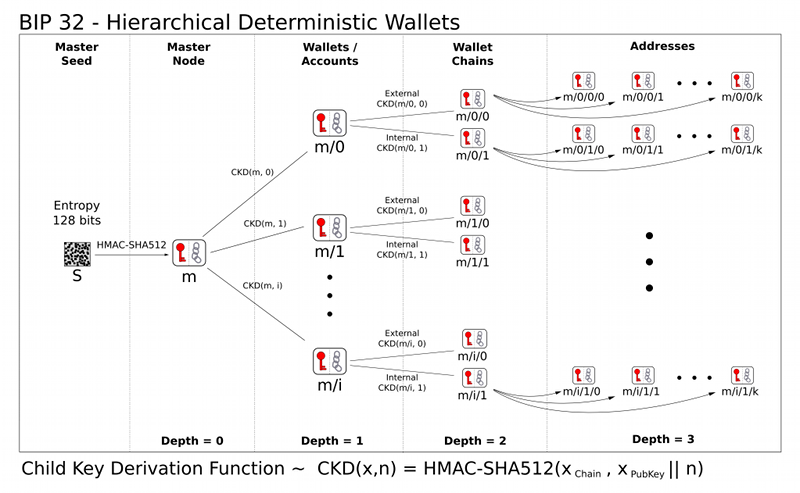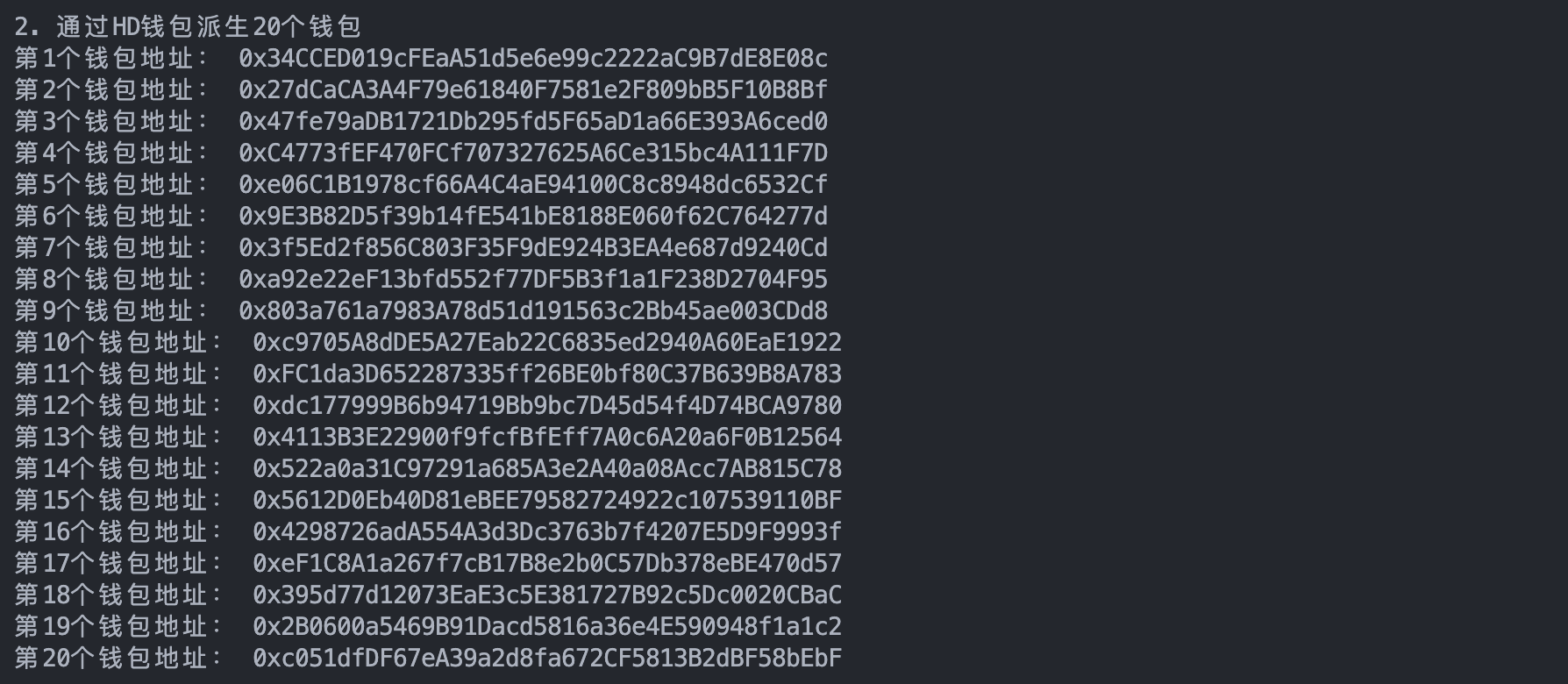WTF Ethers: 14. Batch Wallet Generation
I've been revisiting ethers.js recently to refresh my understanding of the details and to write a simple tutorial called "WTF Ethers" for beginners.
Twitter: @0xAA_Science
Community: Website wtf.academy | WTF Solidity | discord | WeChat Group Application
All the code and tutorials are open-sourced on GitHub: github.com/WTFAcademy/WTF-Ethers
In this chapter, we will introduce HD Wallets and write a script to generate wallets in batch.
HD Wallets
HD Wallets (Hierarchical Deterministic Wallets) are digital wallets commonly used to store the digital keys of cryptocurrency holders, such as Bitcoin and Ethereum. With HD Wallets, users can create a series of key pairs from a random seed, providing convenience, security, and privacy. To understand HD Wallets, we need a basic understanding of Bitcoin's BIP32, BIP44, and BIP39.
BIP32
Before the introduction of BIP32, users had to keep track of a collection of private keys to manage multiple wallets. BIP32 allows the derivation of multiple private keys from a single random seed, making it more convenient to manage multiple wallets. The wallet address is determined by the derivation path, for example, "m/0/0/1".

BIP44
BIP44 provides a set of universal specifications for the derivation path in BIP32, adapting to multiple chains such as Bitcoin and Ethereum. The specification consists of six levels, separated by "/":
m / purpose' / coin_type' / account' / change / address_index
Where:
- m: Fixed to "m"
- purpose: Fixed to "44"
- coin_type: Token type, 0 for Bitcoin mainnet, 1 for Bitcoin testnet, and 60 for Ethereum mainnet
- account: Account index, starting from 0
- change: External or internal chain, 0 for external chain, 1 for internal chain (usually 0)
- address_index: Address index, starting from 0. Change this field to generate new addresses, such as 1, 2, 3.
For example, the default derivation path for Ethereum is "m/44'/60'/0'/0/0".
BIP39
BIP39 allows users to store private keys in a way that can be memorized with a set of human-readable mnemonic words, rather than a string of hexadecimal numbers:
//Private Key
0x813f8f0a4df26f6455814fdd07dd2ab2d0e2d13f4d2f3c66e7fd9e3856060f89
//Mnemonic Words
air organ twist rule prison symptom jazz cheap rather dizzy verb glare jeans orbit weapon universe require tired sing casino business anxiety seminar hunt
Generate Wallets in Batch
ethers.js provides the HDNode class to facilitate the use of HD Wallets by developers. Below, we will use it to generate 20 wallets in batch from a mnemonic phrase.
Create an
HDNodewallet variable. The mnemonic phrase used here is'air organ twist rule prison symptom jazz cheap rather dizzy verb glare jeans orbit weapon universe require tired sing casino business anxiety seminar hunt'.// Generate a random mnemonic phrase
const mnemonic = ethers.Mnemonic.entropyToPhrase(randomBytes(32))
// Create an HD wallet
const hdNode = ethers.HDNodeWallet.fromPhrase(mnemonic)
console.log(hdNode);
Derive 20 wallets using the HD wallet.
const numWallet = 20
// Derivation path: m / purpose' / coin_type' / account' / change / address_index
// Switch the last address_index to derive new wallets from hdNode
let basePath = "m/44'/60'/0'/0";
let wallets = [];
for (let i = 0; i < numWallet; i++) {
let hdNodeNew = hdNode.derivePath(basePath + "/" + i);
let walletNew = new ethers.Wallet(hdNodeNew.privateKey);
console.log(`Wallet ${i+1} address: ${walletNew.address}`)
wallets.push(walletNew);
}
Save wallets as encrypted JSON:
const wallet = ethers.Wallet.fromPhrase(mnemonic)
console.log("Create wallet from mnemonic phrase:")
console.log(wallet)
// Password for the encrypted JSON, can be changed to something else
const pwd = "password"
const json = await wallet.encrypt(pwd)
console.log("Encrypted JSON of the wallet:")
console.log(json)
Read wallets from encrypted JSON:
const wallet2 = await ethers.Wallet.fromEncryptedJson(json, pwd);
console.log("\n4. Read wallet from encrypted JSON:")
console.log(wallet2)
Summary
In this chapter, we introduced HD Wallets (BIP32, BIP44, BIP39) and used ethers.js to generate 20 wallets in batch.